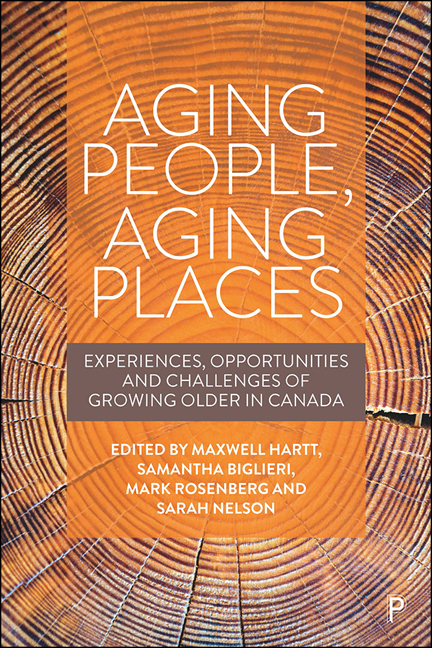19 - Métis older adults and the negotiation of nativeness
Published online by Cambridge University Press: 18 December 2021
Summary
By now, most community planners and local government decision makers are acutely aware of the changing demographic character of North American communities and of the challenges that this change represents for community services and physical infrastructure. In brief, the retirement of the baby boomer generation has already begun, and in just two decades it is projected that 20% of the North American population will be 65 years or older (Menec et al, 2015; Statistics Canada, 2019). In response, the Age-Friendly Communities (AFC) movement has acquired considerable policy and research traction since its launch by the World Health Organization (WHO) in 2007 (World Health Organization, 2007).
Beginning in 2013, the Province of Ontario has made several incremental efforts to expand its AFC policy efforts based on three linked strategic policies and investments – that is, the launch of the Finding the Right Fit Age Friendly Communities Planning Guide, the Ontario AFC Planning Grants Program, and funding for an AFC Outreach and Community Support Program (Ontario Seniors’ Secretariat, 2013). Despite growing attention to the needs of older adults throughout Ontario for nearly a decade, consideration of the needs of Indigenous (ie First Nations, Métis, and Inuit) peoples has been conspicuously absent in recent provincial and municipal AFC research, community engagement, and policy activities (Health Council of Canada, 2013; Ramage-Morin and Bougie, 2017). Where there has been consideration and inclusion of Indigenous voices in local AFC initiatives, those voices are largely represented by First Nations peoples and organizations. This is often based on the assumption that Indigenous perspectives are broadly similar and can be ‘captured’ by First Nations representation, or that other Indigenous peoples and communities such as the Métis do not exist throughout much of Ontario.
A key premise of Ontario's Finding the Right Fit guide is that AFC planning ought to reflect and respond to the circumstances of communities at the local level. In other words, Ontario is a very large territory and the needs of older adults are likely to vary considerably between communities such as Kenora and Kingston. Moreover, the methods and criteria that are used to evaluate communities that are separated by considerable geographic, economic, and cultural differences, ought to reflect local needs and perspectives. Recent efforts by a handful of Ontario local governments to engage with Indigenous communities and organizations in their AFC planning activities reflects Finding the Right Fit's call for more nuanced AFC planning.
- Type
- Chapter
- Information
- Aging People, Aging PlacesExperiences, Opportunities and Challenges of Growing Older in Canada, pp. 223 - 240Publisher: Bristol University PressPrint publication year: 2021



